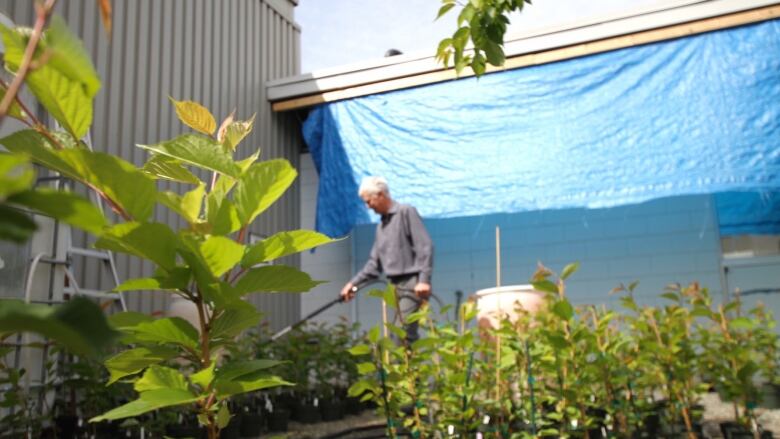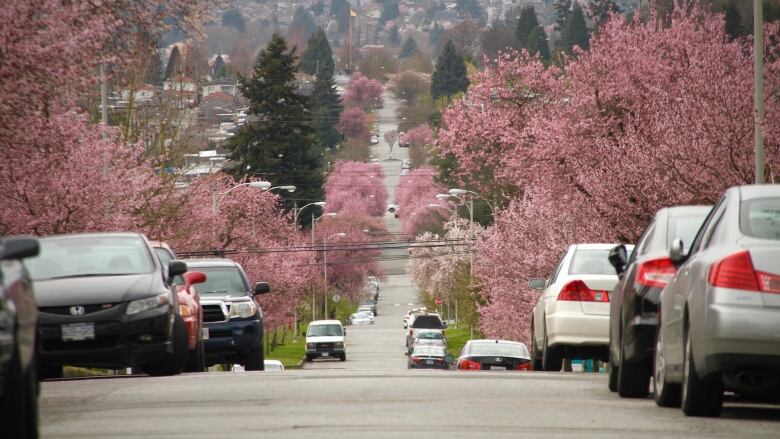BCIT cherry tree sale is an effort to revive rare varieties
The seedlings are the result of a 6-year UBC/BCIT program to save varieties at risk of disappearing

It's a plant sale that hasbeen in the works for six years.
A programto save a fewrare varieties of cherry trees put on bythe University of British Columbia and the British Columbia Institute of Technologyis culminating on Friday, as more than 300seedlings are made available to the public.
"The one thing about these trees, is you won't get these types of trees anywhere else," said BCIT instructor Keith Turner.
Vancouver is known for its beautiful cherry blossoms whichexplode into bloom each spring, and many of those trees originally came as a gift from Japan after the FirstWorld War, according to Turner.

Dozens of different varieties were included in the donation, which was meant as a memorial for Japanese soldiers who fought in the war. Some have flourished over the years, but other varieties have begun to disappear.
"If we lost them, they would definitely be gone forever, because we can't import any more cherry trees from Japan, because of virus quarantine issues," said Turner.
Turner and his students in a biotechnology honours program at both UBC and BCIT have been working to collect some of the rarest varieties andreproduce them in test tubes in a process that takes two years before the little clones can be planted.

The hundreds of 12" - 20" seedlings look young, but since they're clones, they're actually about100 years old. Some of the clonescan be traced back totrees in Japan that are now more than 400 years old, according to Turner.
The program has grown a couple of other varieties, but there will be four on sale at the BCIT campus on Friday.
"The fourthat we have are Ojochin, Ito-kukuri, Fudan Zakura, and another one called'Pink Perfection,'" said Turner. "I'm not sure these trees actually produce cherries."
But they are expected to produce beautiful blossoms once they grow a little more.

Turner said there's a degree of responsibility that comes with the purchase of the $20 seedlings they can't be taken outside Metro Vancouverdue to virus concerns, and buyers will be asked to fill out some paper work so Turner knows where they'll be planted. He's also hoping people report back to him in the next year or two to let him know how the trees are doing.
As for the program, it's come to an end.
"This will be the last of it. I'm not going to be propagating any more cherry trees for sale. This is just a one-shot deal and once they're gone, they'regone," said Turner.
"It's been fun, but we've got to move on. We've got other things to do."

The sale runs at the BCITBurnaby Campus (east of theSE16building) onFriday from 2 p.m. to 5 p.m. PT, or until all the trees aresold.












_(720p).jpg)


 OFFICIAL HD MUSIC VIDEO.jpg)
.jpg)



























































































